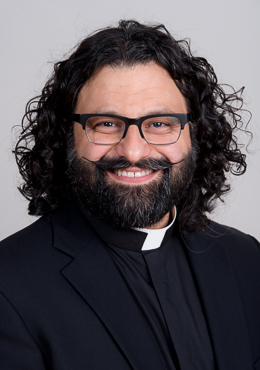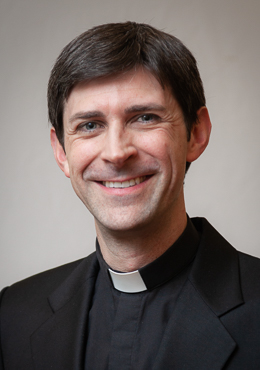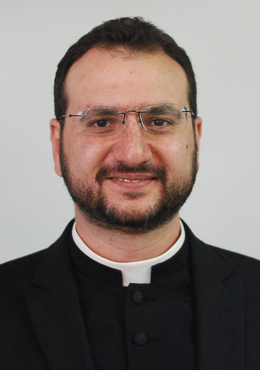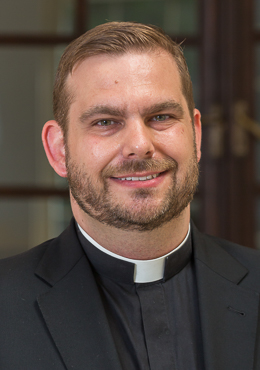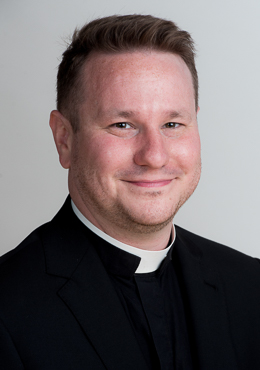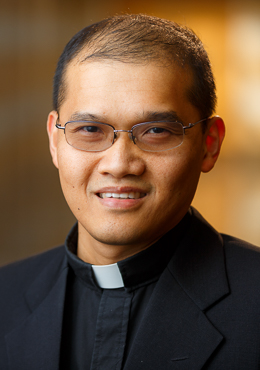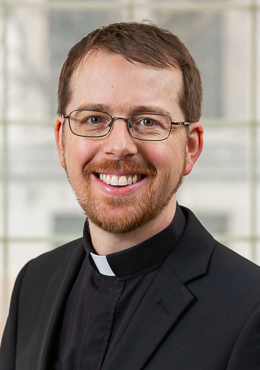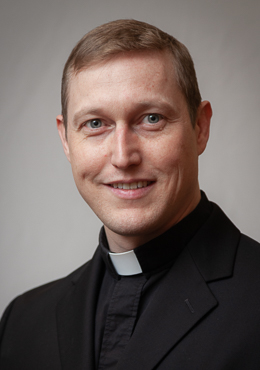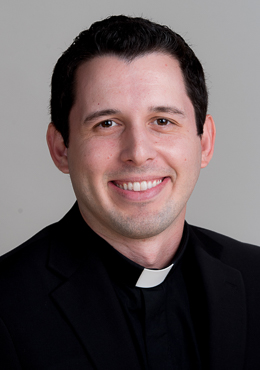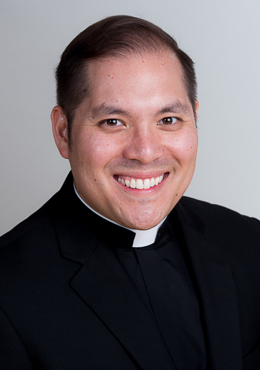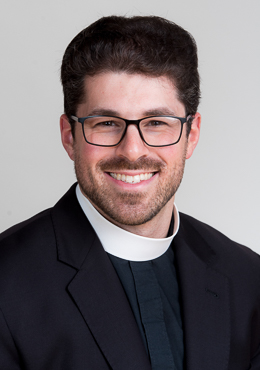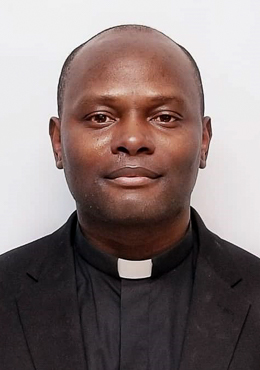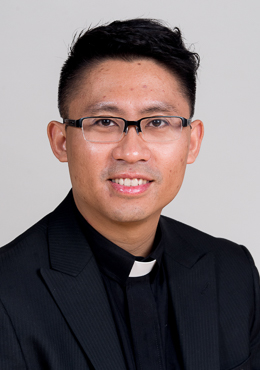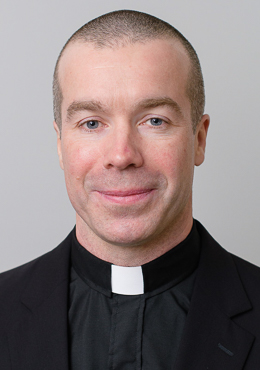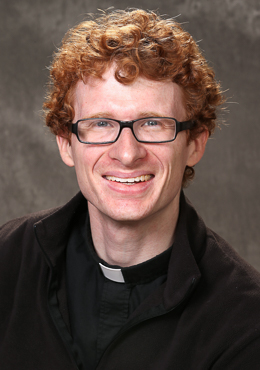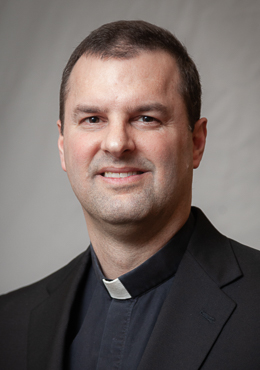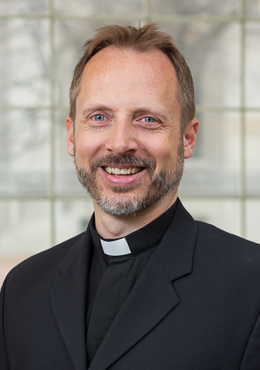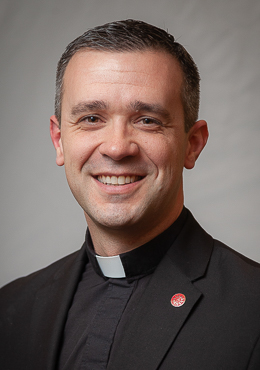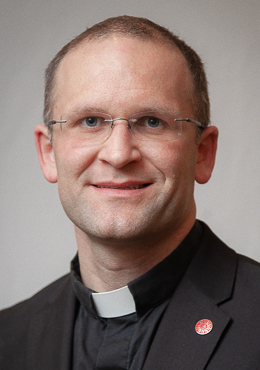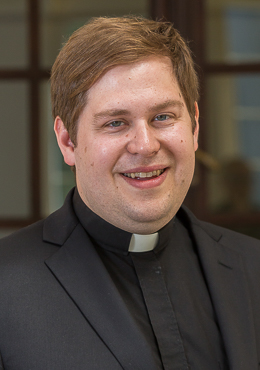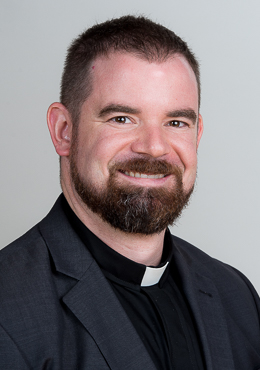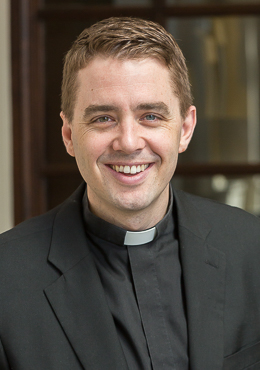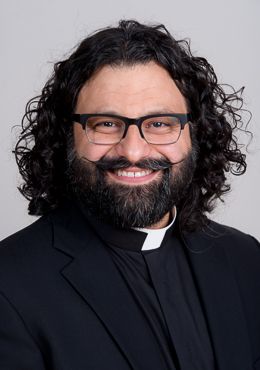
Province: USA Northeast
Birthday: July 23, 1977
Hometown: El Paso, Texas
Education:
Bachelor’s degree, political science and Latin
American studies, University of Chicago
Juris Doctor, Yale Law School
Master’s degree, philosophical resources, Fordham University
Bachelor of Sacred Theology, Jesuit School of Theology of Santa Clara
University
Master of Divinity, Jesuit School of Theology of
Santa Clara University
Highlights of Jesuit Formation:
Taught at Xavier High School in Micronesia
Litigated consumer law claims for poor New Yorkers as a staff attorney at CAMBA
Legal Services
Ministered to youth at Nossa Senhora do Rósario parish in Russas, Ceará, Brazil
Post-Ordination:
Will serve as a Visiting Legal Fellow and Scholar with the
Georgetown University Health Justice Alliance, where he will practice at the
intersection of poverty law and health law.
Biography:
Ricardo Ávila Natividad, SJ, was baptized at San Felipe Apostol in Chihuahua,
Chihuahua, Mexico. His parents and three brothers have been his most important
catechists; they call El Paso, Texas, and Queen of Peace Parish home. He
received his first communion at Our Lady of Sorrows in McAllen, Texas. The
Christian Brothers (F.S.C.) of El Paso’s Cathedral High School (“Live Jesus in
our hearts forever!”) taught Ricardo to think critically about the world and
his faith. He was confirmed at his home parish in 1993. The poor Christ stirred
Ricardo’s heart toward religious life while he completed a bachelor’s degree in
political science and Latin American studies at the University of Chicago.
After graduating from Yale Law School, Ricardo moved to New York City to
practice transactional corporate law and later joined a litigation practice.
During that transition, Ricardo began attending the Franciscan Friars of the
Renewal's “Catholic Underground” and volunteering at their friary in the Bronx;
prayer and work that led Ricardo to call the Society of Jesus’ vocation office.
Moved to be a companion of Jesus, Ricardo entered the Society of Jesus’
novitiate in 2008. As a novice, Ricardo did the Spiritual Exercises at Eastern
Point Retreat House in Gloucester, Massachusetts. He also taught at Xavier High
School in the Federated States of Micronesia and spent time accompanying migrants
on the U.S.-Mexico border with the Jesuits’ Kino Border Initiative, an
immigrant aid organization. He took vows in 2010. Ricardo then completed a
master’s degree in philosophical resources at Fordham University in the Bronx,
New York. While studying philosophy, Ricardo gained a foothold in financial
justice and access-to-justice work by volunteering with Fordham Law School’s
Feerick Center for Social Justice. As a regent, he represented the poor in
consumer law matters as a staff attorney at a non-profit and was then missioned
to Nossa Senhora do Rósario in Brazil, where he worked with the Pastoral da
Juventude. Next, Ricardo completed a bachelor’s degree in sacred theology and a
master’s degree in divinity at the Jesuit School of Theology of Santa Clara
University in Berkeley, California. While at JST, Ricardo interned at the
Metropolitan Tribunal of the Archdiocese of San Francisco and served the
Diocese of Oakland at the Cathedral of Christ the Light, where he was ordained
to the transitional diaconate in 2018. (USA
Northeast Province)

Patrick Nolan, SJ, and Ricardo (right) leaving Chuuk, Federated States of Micronesia, after the long experiment.
What is one
hobby you’ve cultivated as a Jesuit and why is it important to you?
Photography. A picture seems self-contained and self-explanatory,
but a little reflection reveals that there is more to the story it tells. The
camera points to what is there and what is not there; interpretation is
required to make sense of what meets the eye. Our lives are made of just such
moments, so are sacraments.
Tell your
vocation story. One catch: You must use only six words.
Lord, you are enough; help me.

Ricardo (far right) with his parents on the Staten Island Ferry.
What is your favorite book, movie, music, or TV show you’ve encountered
since entering the Society and why do you love it?
"Jokes: Philosophical Thoughts on Joking Matters" by Ted
Cohen. The book revealed what Alexander the Great and Winnie the Pooh have in
common and introduced me to shaggy dog jokes. It also exposed what jokes do to
us and make us do. Even more importantly, the book helped me appreciate that
“turning aside to look,” as Moses did, brings us closer to God.
How might
you explain the Jesuit motto "ad maiorem Dei gloriam" to someone
who’s never heard it before?
AMDG is shorthand for the Latin phrase Ad
Maiorem Dei Gloriam, which is itself a mnemonic device. First it reminds
Jesuits of their mission, which has not changed since it was set out in the
Formula of the Institute: To strive for the defense and propagation of the
faith and for the progress of souls in Christian life and doctrine and for the
spiritual consolation of Christ's faithful according to what seems most
expedient for the glory of God and the common good. Second, it reminds Jesuits
of the aim of the Spiritual Exercises of St. Ignatius. That is, it reminds
Jesuits that they should strive to be free from disordered attachments so that
when they are making choices they might elect what will maximize praise and
reverence to God. Reflection on the meaning of these words and ideas and on the
Society’s apostolic history reveals just how many enormous concepts those four
little letters call to mind.
